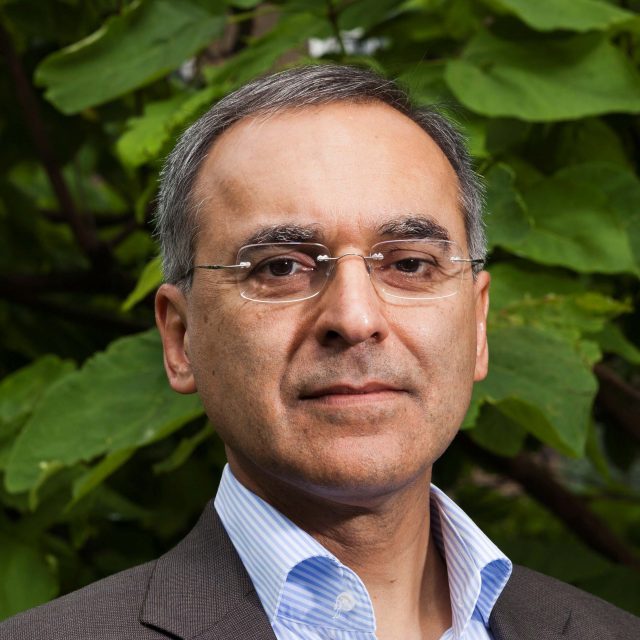
Edward B. Barbier
Dr. Edward B. Barbier was formerly at the Environment Department, University of York, UK and previously served as Director of the London Environmental Economics Centre of the International Institute for Environment and Development and University College London.
Professor Barbier has over 25 years experience as an environmental and resource economist, working on natural resource and development issues as well as the interface between economics and ecology. He has served as a consultant and policy analyst for a variety of national, international and non-governmental agencies, including many UN organizations and the World Bank. Professor Barbier serves on the editorial boards of several leading economics and natural science journals, and he appears in the 4th edition of Who’s Who in Economics.
He has authored over 150 peer-reviewed journal articles and book chapters, written or edited seventeen books and published in popular journals. Some of his well-known works include Blueprint for a Green Economy (with David Pearce and Anil Markandya, 1989), Natural Resources and Economic Development (2005), and the UN Environment Programme report A Global Green New Deal (2009).
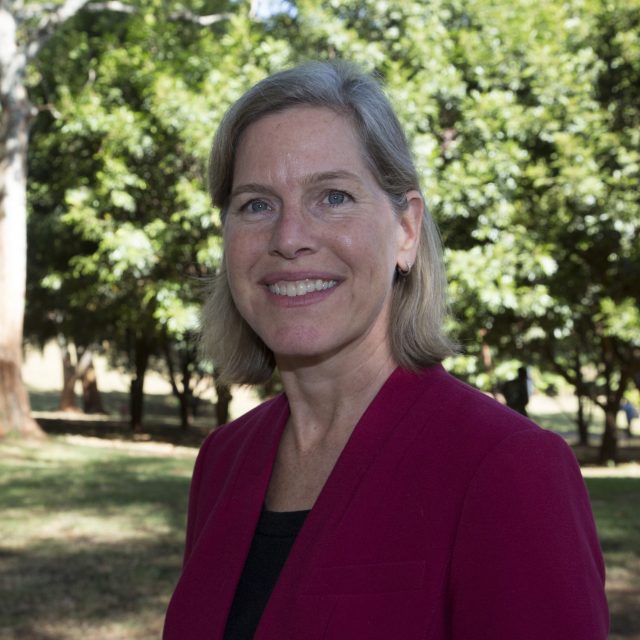
Susan Gardner
Dr. Susan Gardner is Director of Ecosystems Division of UN Environment Programme. She has over two decades of experience in science and environmental policy working for both the Mexican and United States governments. She was a senior official in the United States National Oceanic and Atmospheric Administration (NOAA) focused on fisheries science and ocean conservation. Prior to this position, she was a senior official at the U.S. Department of State in the Bureau of Oceans and International Environmental and Scientific Affairs. Dr. Gardner’s work on multilateral agreements included the Strategic Approach to International Chemicals Management, the Global Mercury Partnership and the Stockholm Convention. Based on her contributions to the Minamata Convention on Mercury she was awarded the Gold Medal for Exceptional Services from the U.S. Environmental Protection Agency. Dr. Gardner created the first Ecotoxicology Program at the Centro de Investigaciones Biológicas del Noroeste where she earned the distinction of membership in the Mexican Sistema Nacional de Investigadores and board certification as a fellow of the Academy of Toxicological Sciences. Her research has generated over 30 publications including a book and book chapters on topics related to ecology, toxicology, fisheries management and species conservation.
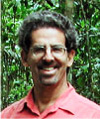
Peter H. May
Peter H. May received his PhD in Resource Economics from Cornell University in 1986. Professor and former chairman of the Department of Development, Agriculture and Society-DDAS of the Federal Rural University of Rio de Janeiro-UFRRJ, May has been Visiting Scholar at the Energy and Resources Group of the University of California-Berkeley, and at the Earth Institute at Columbia University.
He acted as Program Officer (Rural Poverty and Resources) at the Ford Foundation’s Rio Office and as Forestry Officer (Non-Wood Forest Products) at the FAO in Rome. He also served as Executive Secretary of the Brazilian Agroforestry Network-REBRAF and is currently an Associate Director of Friends of the Earth-Brazilian Amazon.
Author and editor of 11 books in ecological economics and environmental policy, May founded and served as the first President of the Brazilian Society for Ecological Economics-ECOECO.
He has been engaged during 25 years of resident research, teaching and consultancy in Brazil in research, consultancy, project administration and training in the economics and management of natural resources for sustainable rural development. His specific areas of expertise include: environmental valuation, cost-benefit analysis, economic instruments, payment and compensation for ecosystem services, conservation finance, utilization and marketing of forest products, forest product certification, agroforestry systems and watershed management. Besides his experience in Brazil, he has also undertaken short-term assignments in Central America and the Caribbean, Peru and Thailand.

Alexander Müller
Alexander Müller (Germany) is the study leader of “The Economics of Ecosystems and Biodiversity for Agriculture and Food”.
Alexander Müller received a diploma in sociology at the Philipps-University in Marburg in 1985.
- He was elected as city councillor in Marburg (1985 -1992) with the responsibility for social and environmental affairs and was chair of the board of the municipal utilities (electricity, natural gas, water and public transport).
- From 1992 to 1995 he was appointed as state secretary in the Ministry of Youth, Family Affairs and Health in the state of Hesse.
- From 1995 to 2000 he was member of the parliament of Hessen and served inter alia as chair of the caucus and member of the budget committee.
- From 2001 to 2005 he was State Secretary in the Ministry for Consumer Protection, Food and Agriculture in the Federal Republic of Germany.
- From 2006 until June 2013 he served as Assistant-Director General of the Food and Agriculture Organization of the United Nations (FAO) and was responsible for the Department for Natural Resources and Environment.
- The Secretary-General of the UN nominated him as a member of the Advisory Group on Energy and Climate Change (AGECC) in June 2009 to advise him on the energy-related dimensions of the climate change negotiations.
- From 2008 to 2011 he was chair of the United Nations System Standing Committee on Nutrition (UNSCN).
- May 2013 until Oct. 2014 he was Senior Fellow in the cluster Global Contract for Sustainability of the IASS working on governance of sustainability, with a focus on soils and its role in the Nexus of Water, Food and Energy and on the German Energiewende.
- He was also appointed as study leader of the UNEP project “The Economics of Ecosystems and Biodiversity Agriculture and Food” (TEEB AgFood).
The European Commission appointed him as a member of the independent expert commission on “Junction of Health, Environment & Bioeconomy: Foresight and Implications for European Research and Innovation Policies” to advise on the design of the Union research and innovation policy.

Hans Bruyninckx
Hans Bruyninckx took office as the Executive Director of the European Environment Agency on 1 June 2013.
Over the last 20 years, he has conducted and managed policy-oriented research in the areas of environmental politics, climate change, and sustainable development, as well as being involved in numerous policy processes as an advisory board member and policy advisor to government agencies and other key actors.
His expertise lies primarily in the field of European and international environmental policy, studying the effects of globalization on the global governance of environmental issues and sustainable development. His experience pertains to the level of the regions (Flanders in a comparative European perspective), the EU Member States, the EU level, the Organization for Economic Co-operation and Development (OECD), and processes of global environmental governance (climate change in particular).
Before his appointment to the EEA, he was head of the HIVA Research Institute in Leuven, Belgium, a policy-oriented research institute associated with the Katholieke Universiteit Leuven, where he was head of the Political Science department from 2007 to 2010. Dr Bruyninckx was also a senior member of the interdisciplinary Leuven Centre for Global Governance Studies and promoter-coordinator of the Flemish Policy Research Centre on Transitions for Sustainable Development (TRADO).
In addition, he has worked extensively with civil society and business actors, in support of public-private initiatives or private regulatory approaches to environmental, climate change and sustainability issues. He was president of the board of Bond Beter Leefmilieu (The Association for a Better Environment), a Flemish umbrella organization bringing together many different environmental groups.
Dr Bruyninckx studied undergraduate and master’s degrees in political science specializing in international relations at Antwerp University and Katholieke Universiteit Leuven. In 1996 he completed a PhD degree at the Colorado State University on the topic of international environmental politics, subsequently teaching at several other universities in the United States and Europe, including Colorado State University, Canisius College and Wageningen University.
Dr Bruyninckx speaks fluent English, French and German in addition to his native Flemish. He is a keen sailor as well as an outdoor and sports enthusiast.

Mark Gough
Mark Gough is the Executive Director of the Natural Capital Coalition, and led the collaboration that delivered the Natural Capital Protocol, a standardized global framework for including natural capital in decision making.
Mark previously worked for The Crown Estate, helping to develop its integrated vision and approach to value measurement.
Prior to this he was the Global Environmental Manager for the information company, Reed Elsevier. Mark is a Director of the Aldersgate Group, which brings together business, politics and civil society to drive action for a sustainable economy, and has sat on a number of national and international committees, including the Steering Committee of the United Nations CEO Water Mandate and the Board of the Alliance for Water Stewardship.
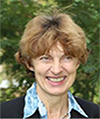
Jacqueline McGlade
Professor Jacqueline McGlade is currently UNEP Chief Scientist and Director of the Division of Early Warning and Assessment. She is on leave from University College London, where she is Professor in Environmental Informatics in Earth Sciences. Prior to this she was Executive Director of the European Environment Agency, Director of the Centre for Coastal and Marine Sciences of the UK Natural Environment Research Council, Professor of Biological Sciences at the University of Warwick, Director of Theoretical Ecology at the FZ Jülich and Senior Scientist at the Bedford Institute of Oceanography in the Federal Government of Canada. She has held a number of key participatory and advisory roles including as Board Member of the Environment Agency for England and Wales and the European Bank for Reconstruction and Development, Trustee of the Natural History Museum, and is a member of a number of environmental prize juries.
Her activities and research continue to be focused on the dynamics of ecosystems and planetary systems, sustainable development and the governance of natural resources, environmental informatics with particular reference to the development of smart systems for environmental monitoring and observation, socio-economic transitions and policy analysis. She has published over 200 peer-reviewed papers, articles, books, plus government reports and legal submissions to the International Court of Justice and produced and presented award winning feature films (Planet RE;think, One Degree Matters, Our Arctic Challenge), TV (Blue Revolution, Power of Nature, The Next Big Thing, Chaos) and radio series (Ocean Planet, Learning from Nature, King John’s Treasure). As founder of her own software company, she has developed many software systems, games and applications particularly in the area of fuzzy logic and decision-making under high uncertainty (including SimCoast, Flood Ranger).
Professor McGlade is a fellow of two learned societies (FLS and FRSA), has received international prizes, honours and honorary degrees in the Czech Republic, Germany, Italy, Monaco, Romania, Sweden, UK, the USA and various global and regional institutions and professional associations. She was the GSDI Global Citizen 2013.
Her educational degrees include BSc (Hons) Marine Biology, Biochemistry and Soil Science, University College of North Wales; PhD Aquatic Sciences and Zoology, University of Guelph, Canada; MA University of Cambridge.

Ligia Noronha
Ligia Noronha is an economist with over 25 years of international professional experience in promoting environmental sustainability.
She was appointed in April 2014 as Director of the UN Environment Programme (UN Environment), Division of Technology, Industry and Economics – now known as the Economy Division. The Division works to shift economies from brown to green with a strategic focus on decarbonizing, decoupling, and detoxifying. Ms. Noronha acts as Lead Director of three of the seven UN Environment’s sub-programmes, namely climate change, chemicals and waste, and resource efficiency, and leads the emerging agenda on Environment/Pollution and Health.
Ms. Noronha’s prior experience spans a wider-range of bodies in both the private and public sectors. Prior to joining UN Environment, she served in The Energy and Resources Institute (TERI) as Executive Director (Research Coordination) and as Director of the Resources, Regulation and Global Security Division. Her work focused on conducting policy research on sustainable development in India and the Global South.
From 2005 to 2011 she served as Secretary of the Asian Energy Institute focusing on policy research on energy, resources, climate change and sustainable development issues. From 2005 to 2009, Ms. Noronha served as Coordinator of the Renewable Energy and Energy Efficiency Partnerships (REEEP), South Asia. In 2004, she was appointed Team Leader of Ecosystem Approaches to Human Health at the International Development Research Centre (IDRC), Canada. Ms. Noronha has served on the National Security Advisory Board of the Government of India focusing on the linkages between the environment, climate and security and on several expert committees of the Government of India and Goa, including the Expert Committee on Climate Change, the Western Ghats Ecology Expert Panel, and the Task Force on Natural Resources of the Commission on Centre State Relations.
In addition, she has been a member of the Planning Board of the Government of Goa and member of the Goa Jubilee Development Council, a member of Shell International’s External Review Committee on Sustainability Reporting. Ms. Noronha served as a member of the Global Assurance Group of the Mining, Minerals and Sustainable Development project, which examined how the mining and minerals sector could contribute to the global transition to sustainable development. From 2009 to 2011, she was a Visiting Senior Fellow at the University of Sydney-based Centre for International Security Studies (CISS).
Ms. Noronha has published nationally and internationally on emerging issues relevant to energy and resource security, climate change, India’s environmental and coastal policy, responsible mining, and resource federalism. She has also co-edited a number of books.
Ms. Noronha is an Indian national with a Masters in Economics from the University of Bombay, a Masters in Sea Use Law, Economics, and Policy, and a PhD from the London School of Economics.

Guillermo Castilleja
Guillermo Castilleja is a senior fellow at the Gordon and Betty Moore Foundation. As an advisor to the president, Guillermo focuses on both internal analytics and external relations—providing foresight and judgement to aid in identifying future directions, as well as opportunities to elevate the foundation’s and grantees’ achievements.
Previously, Guillermo served for more than five years at the helm of the foundation’s Environmental Conservation Program, leading its efforts to protect critical ecosystems and balance long-term conservation with sustainable use.
Before joining the foundation in 2010, Guillermo worked for World Wildlife Fund-International (WWF), most recently as executive director for conservation. In that capacity, he directed and coordinated its global conservation efforts, leading the development of global priorities for the network, overseeing implementation of its activities and monitoring progress. He has also worked for the World Bank and the National Wildlife Federation.
Guillermo currently chairs the steering committee for the Global Alliance for the Future of Food, a coalition of foundations dedicated to improving the sustainability, security and equity food systems. Guillermo also serves on The Economics of Ecosystems and Biodiversity (TEEB) Advisory Board and the boards of the Climate and Land Use Alliance and the Fondo Mexicano Para La Conservación De La Naturaleza, A.C./Mexican Fund for the Conservation of Nature, A.C. (FMCN). Previously, Guillermo was a member of Mexico’s National Commission on Protected Areas and the National Forestry Commission, as well as the Board of Directors for WWF Russia. Through speaking engagements around the world, research published in peer-reviewed journals and the media, Guillermo has addressed topics including the relationship between protected areas and food security, strategies for long-term financing of large-scale land conservation, and the social opportunities and challenges of biodiversity conservation.
Guillermo graduated from the National University of Mexico and received a Master’s degree in Forestry, a Master’s degree in Philosophy and a doctorate in Forest Ecology from Yale University.
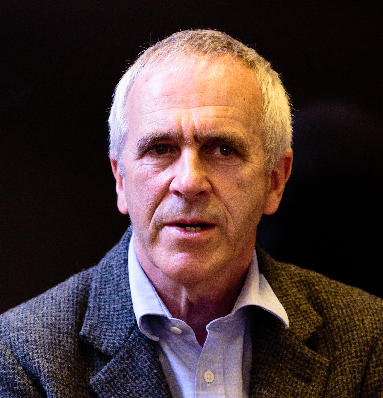
Patrick Holden
Patrick Holden is the founding director of the Sustainable Food Trust, a new organisation based in Bristol, UK, working internationally to accelerate the transition towards more sustainable food systems.
After studying biodynamic agriculture at Emerson College, he established a mixed community farm in Wales in 1973, producing at various times: wheat for flour production sold locally, carrots, and milk from an 85 cow Ayrshire dairy herd, now made into a single farm cheddar style cheese by his son Sam.
He was the founding chairman of British Organic Farmers in 1982, before joining the Soil Association, where he worked for nearly 20 years and during which time the organisation led the development of organic standards and the market for organic foods.
His advocacy for a major global transition to more sustainable food systems now entails international travel and regular broadcasts and talks at public events.
He is Patron of the UK Biodynamic Association and was awarded the CBE for services to organic farming in 2005.

Ladislav Miko
Ladislav Miko was Director for Nature (2005 to 2010) in the Directorate-General for Environment of the European Commission. In this position, he held responsibility for the Directorate-General’s work on nature and biodiversity, agriculture, soils and forests.
In the period May-December 2009 he held office of the Minister of the Environment of the Czech Republic in the country’s caretaker government.
Before he started his career in the European Commission, in 2002 – 2005, he was Deputy Minister and Director General for Nature and Landscape Protection in the Ministry for Environment of the Czech Republic. In 2001-2002 he worked as a private consultant on the evaluation of EU-funded programmes in the Czech Republic. Prior to this, he worked for 8 years at the Czech Environmental Inspectorate, establishing the inspection system and standards in nature protection and CITES implementation.
His early career was as at the Slovak Academy of Sciences, where he became Deputy Director of the Institute of Ecology of Agricultural Landscapes.
He holds a doctorate in zoology and ecology. His research interests focused on zoology, soil zoology and ecology, and he has published widely in the scientific and popular press. He has also worked as a trainer, lecturer and court advisor. He is teaching ecology, soil biology and environmental sciences at Charles University and at the University of Life Sciences in Prague. Since 2010 he is also guest Professor of Antwerp University, teaching environment and society relations and ecological restoration courses.
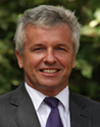
Tony Simons
has worked for over thirty years on issues at the agriculture/forestry interface. This experience has been gained in over 50 countries in the private sector (Shell), academia (University of Oxford), official development assistance (ODA/DFID) and research (CGIAR). He has a PhD in tree genetics from Cambridge University (UK) as well as an Honorary Professorship in Tropical Forestry at the University of Copenhagen. He has published over 100 research papers and has mentored dozens of young scientists in developing countries.
Tony is passionate about the transformative and profitable change that the private sector can bring to development having established partnerships with MARS Inc., DANONE, Syngenta, Boehringer and Unilever.
He also sits on various Boards and Investment committees including Global Restoration Council, ACTS, Livelihoods Fund and Tropical Landscape Finance Facility.
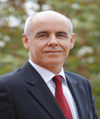
Humberto Delgado Rosa
Humberto Delgado Rosa is the Director of Directorate D (Natural Capital), DG Environment, European Commission, since 16 November 2015. Previously and since January 2012 he served as Director for Mainstreaming Adaptation and Low Carbon Technology in DG Climate Action, EC. His current Directorate’s mission is to protect, conserve and enhance the EU’s natural capital in the areas of biodiversity, land and soil, forests and nutrient cycles.
Mr. Delgado Rosa has relevant experience in European and international environmental policy, particularly in biodiversity and climate change issues. Having served as Secretary of State for the Environment of the Portuguese Government from March 2005 to June 2011, he held responsibility in environmental issues in general, and particularly in biodiversity and nature conservation, climate change, environmental impact assessment, pollution prevention and control, air quality, noise, waste management, sustainable development. During the Portuguese Presidency of the EU in 2007, he was involved in the launch in Lisbon of the European Initiative on Business and Biodiversity and of the International Carbon Action Partnership, and he acted as EU lead negotiator for the UN Climate Change Conference, when the Bali Roadmap was approved. In 2005 H.D. Rosa was elected Member of the Portuguese Parliament for the Socialist Party, having interrupted his mandate to integrate the Government. Between 1995 and 2002 he was an advisor for environmental matters to the Prime-Minister of Portugal
Mr. Delgado Rosa was a member of several professional and scientific organizations, having served on the following boards: President, European Communities Biologists Association (1989-1991); General Secretary, Portuguese Biologists Association (1987-1995); President, Portuguese Society of Natural Sciences (2002-2005); founder and Vice-President, Portuguese Society of Herpetology (1993-2005); Member of the Board, European Society for Agriculture and Food Ethics (2003-2005); founder and General Assembly Chair, Portuguese Society of Environmental Ethics (2000-2005).
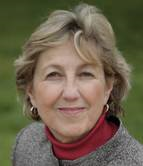
Julia Marton-Lefèvre
Julia Marton-Lefèvre stepped down as Director General of IUCN (International Union for Conservation of Nature) in January 2015, having served as the head of this unique global membership organization bringing together governments and non-governmental organisations, scientists and experts to seek a ‘’just world that values and conserves nature. As Director General she was also CEO of IUCN’s Secretariat of over 1000 persons with offices in some 50 countries.
Prior to her eight years at IUCN, she was Rector of the UN-mandated University for Peace (UPEACE) with its main campus in Costa Rica. UPEACE is a graduate-level international university providing education, training and research on issues related to peace, conflict, and environmental security.
Earlier offices held by Ms. Marton-Lefèvre include the Executive Director of LEAD (Leadership for Environment and Development) International, a programme established by The Rockefeller Foundation to bring together and train mid-career leaders from all parts of the world and from several sectors to improve their leadership skills around the issues of sustainable development.
Ms. Marton-Lefevre also served for many years as the Executive Director of the International Council for Science (ICSU) with its headquarters in Paris. ICSU is non-governmental membership organization of national academies of science and international unions of scientific disciplines.
Ms. Marton-Lefèvre has given hundreds of speeches throughout her career, written articles, op ed pieces, and contributed to several books. She has served on dozens of boards, councils and committees which include today, the Chair of the Executive Committee for the Tyler Prize for Environmental Achievement, the Geneva-based Graduate Institute of International and Development Studies, Oxford University’s James Martin School, The Prince Albert II of Monaco Foundation, Bioversity, the Turkana Basin Institute, and the Institute for Sustainable Development and International Relations (IDDRI).
In her efforts to bridge the gap between business and civil society, J. Marton-Lefèvre has served on the environmental advisory boards of the Dow Chemical Company the Coca Cola Company, Nespresso and on the board of the UN Global Compact. In 2015 she has been selected to chair an Advisory Board to the Sustainable Biomass Partnership, and is on committees advising Veolia and BNP Parisbas.
In recognition of her work at ICSU, Ms. Marton-Lefevre received the prestigious AAAS Award for International Cooperation in Science. She has also been honoured as a Chevalier de la Légion d’Honneur by the government of France, as a Chevalier dans l’Ordre de Saint-Charles by HSH Prince Albert of Monaco, the ProNatura award by the government of Hungary and the Presidential citation from the Republic of Korea. She was elected as a member of the World Academy of Art and Science and the World Future Council and as a Fellow of the Royal Geographic Society. As a policy fellow, selected by The Rockefeller Foundation she plans to begin a writing project during 2015 at the Foundation’s Bellagio Center, and in 2016 she will be the Edward Bass Distinguished Visiting Fellow in Environment at Yale University.
Ms. Marton-Lefèvre was born in Hungary, educated in the United States and in France, and having lived in several continent s, considers herself a global citizen.

Herman Mulder
In the period 1995-1998, he worked at ABM AMRO as Head of Global Structured Finance.
During his tenure as Director-General it became the premier international bank in sustainable development. Since retiring from ABN AMRO he has been able to dedicate himself as an independent advisor and board member to all dimensions of sustainable development: voluntary business codes of conduct, climate, value chain, microfinance, social entrepreneurship, development finance and fair trade.
He advises i.a. Global Compact, WBSCD, Club de Madrid, Taellberg Foundation, OXFAM NOVIB, Earth Charter International, Youth Employment & Sustainability (YES); he is a member of the judging panel of the FT/IFC Sustainable Bank Awards. Herman Mulder is also a member of a number of boards including: Global Reporting Initiative (GRI), Utz Certified/Good Inside, Dutch National Council for Development Co-operation and Sustainable Development (NCDO), Dutch National Contact point for OECD Guidelines (NCP), Business in Development (BID), ABN AMRO Foundation India, Business Steering Committee for the UN Finance for Development conference in Doha in 2008 and the CBI (Consensus Building Institute) in Boston.
He is also a frequent public speaker and a member of the Steering Committee of the Worldconnector. He was made a Knight in the Royal Order of Oranje Nassau for his work in Sustainable Developement.
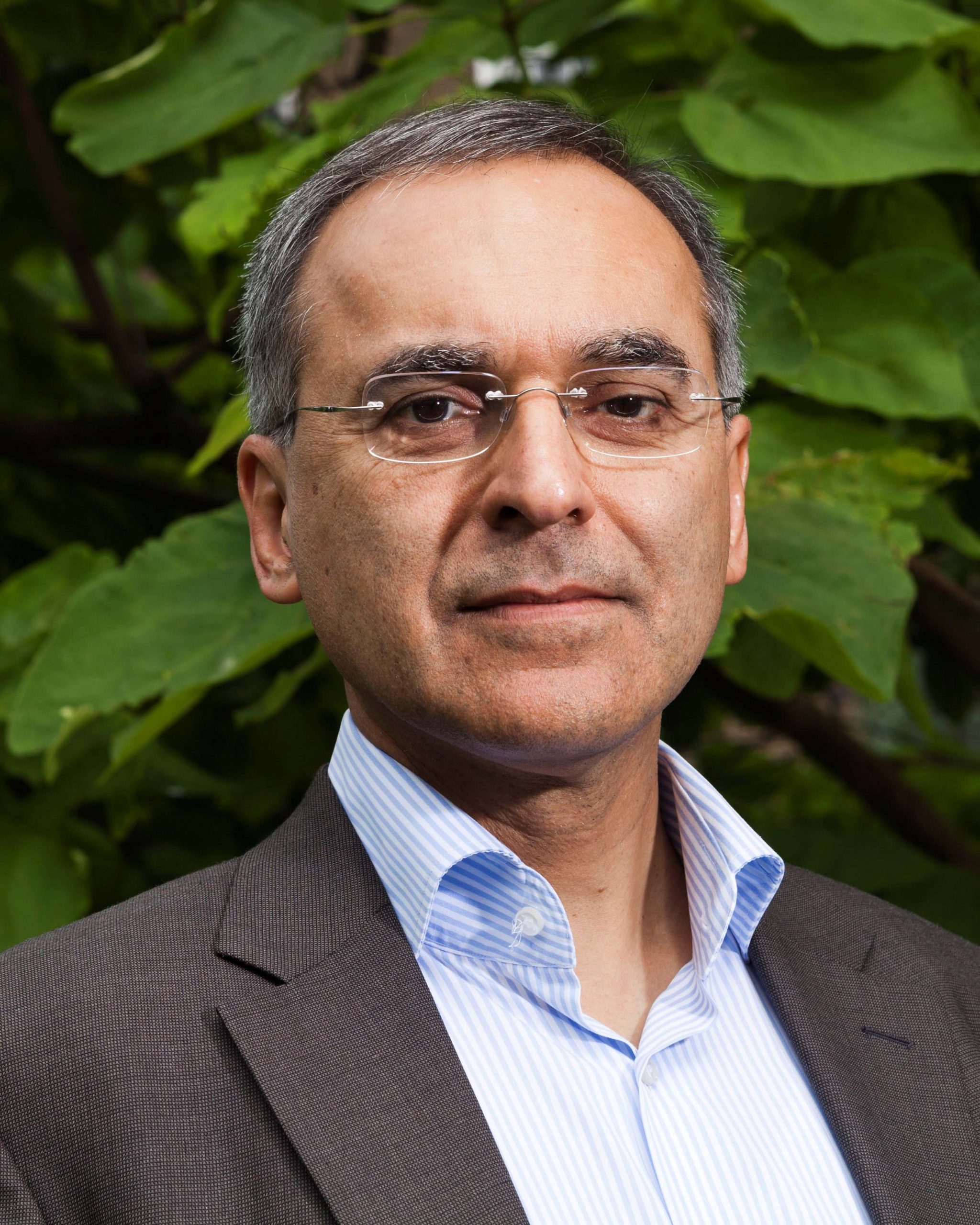
Pavan Sukhdev
Other key responsibilities: former President, WWF-International; UNEP Goodwill Ambassador
Pavan Sukhdev is a scientist by education, an international banker by training, and an environmental economist by passion. Years of work in sustainability and the invisible economics of nature led to his appointment to head the United Nations’ “Green Economy Initiative ” and to lead the G8+5 study TEEB (The Economics of Ecosystems and Biodiversity).
Pavan was awarded the McCluskey Fellowship (2011) by Yale University. At Yale, he taught a graduate course on TEEB and wrote his book “Corporation 2020-Transforming Business for Tomorrow’s World”. In this book, he advocates four changes in micro-policy and regulation that can rapidly transform today’s corporation to deliver tomorrow’s green and equitable “economy of permanence”.
As Founder and CEO of GIST Impact, which delivers high-quality impact data and intelligence, Pavan works with corporations and investors, harnessing the power of impact economics and technology to discover the full value contribution a business makes to the world.
Pavan has served on the boards of Conservation International (CI), the Global Reporting Initiative (GRI), the Stockholm Resilience Centre (SRC), and the TEEB Advisory Board. His work has been recognised through several awards, including the Blue Planet Prize (2016) and the Tyler Prize (2020).
















